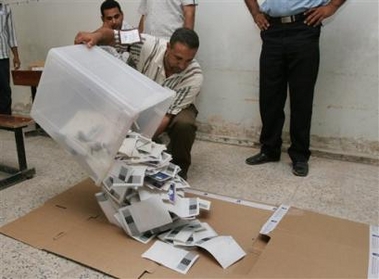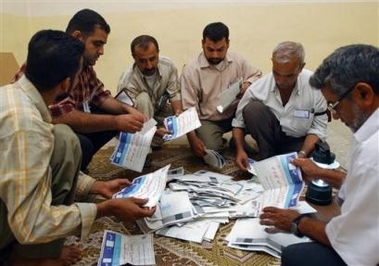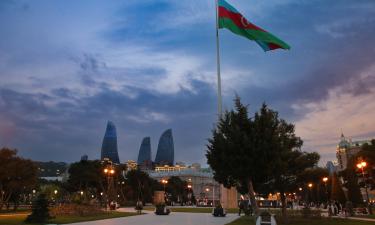Iraq's constitution may split the nation into three separate states
The national referendum of the constitution of Iraq showed an unusually high turnout
The Iraqi referendum on the nation's controversial constitution has produced a sensation over the weekend: over 66 percent of the country's population came to the polls despite previously-made pessimistic forecasts. The nationwide approval of the constitution required people's support in 16 of Iraq's 18 provinces. 
The Iraqi authorities and spokespeople for international forces had every reason for concerns: explosions occur in the country regularly, killing dozens of people daily. The actual referendum started in Iraq on Friday to avoid jams near the polls. Several skirmishes occurred in Baghdad and other regions of Iraq despite the security measures taken, although no one was killed or seriously injured in those clashes.
The referendum's central intrigue was connected with the turn out of Sunni electors, which make the majority in four of the country's provinces. Many of them originally refused to back the constitution on the assumption of a possible national split into three separate states: the Sunni, the Shiite and the Kurd areas. There was an additional paragraph about Iraq's unity introduced to the draft document, which led Sunnis to believe that oil deposits in southern and northern areas of Iraq would not be turned into “foreign territories” as a result of the nation's federative organization.
Nevertheless, the fact that many of the Sunni community turned up for the referendum does not mean that the Constitution of Iraq will be finally approved. A lot of Sunni leaders urged their coreligionists to say “no” to the constitution. However, Shiites, living in the country's south and Kurds from the north of Iraq, have most likely voted for the Iraqi Constitution, because they enjoy the dominating position in the country. As for the Kurds, their language will be granted an official status in the northern areas of Iraq and will thus be equalized with the Arabic language. According to experts' estimates, the Kurds view the nationwide federalization of Iraq as the first step towards the national independence.
The constitution, however, does not guarantee the end of the war in Iraq: every community will continue to struggle for its objectives. Furthermore, the majority of Iraqis will not agree upon the USA and its allies' eternal presence in Iraq. To crown  it all, the constitution will not make the notorious al-Qaeda network disappear: the group-linked terrorists have already said that they will never acknowledge any results of the referendum and will continue their attacks.
it all, the constitution will not make the notorious al-Qaeda network disappear: the group-linked terrorists have already said that they will never acknowledge any results of the referendum and will continue their attacks.
The international situation may change drastically too. The leaders of many of US-allied states said before that their troops would be withdrawn from Iraq after the approval of the national constitution. Spain was the first country to announce such an intention in March of 2004. Norway will seemingly follow the Spanish example too: Jens Stoltenberg, the new Prime Minister of Norway, declared that Norway was going to start withdrawing its troops from Iraq. The Czech Republic, Hungary, Denmark, Portugal and several other members of the coalition are currently looking into the matter as well.
The final results of the referendum will be unveiled on Tuesday, October 18. It is noteworthy that the overthrown Iraqi dictator, Saddam Hussein, is scheduled to stand trial one day later, October 19. Similarly to the recent nationwide referendum, the process may have a very serious influence on the future of Iraq.
Ivan Shmelev
AP photos
You can discuss this article on Pravda.Ru FORUM:
Subscribe to Pravda.Ru Telegram channel, Facebook, RSS!




